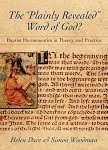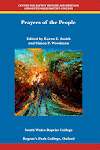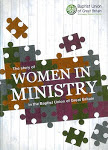Bloomsbury
Central Baptist Church
9
September 2018
Genesis 4.1-16 (OT p.3)
Hebrews 10.1-6, 10-14 (NT p.239)
Listen to the sermon here:
https://soundcloud.com/bloomsbury-1/murder-were-all-cain
Listen to the sermon here:
https://soundcloud.com/bloomsbury-1/murder-were-all-cain
On the Saturday night of the August Bank Holiday weekend, a couple
of weeks ago,
a
young man was stabbed to death in South East London,
not
too far from where I live.
His death came just days after the Metropolitan police
The capital's murder rate is on course for a 28 per cent rise in
2018
after
a wave of street killings, mostly gang-related knife-crime,
And today, as we come to consider the story of Cain and Abel,
I
want to suggest that Cain, the first murderer of the biblical tradition,
is
still alive and living amongst us.
It seems to me that this archetypical ‘marked man’ of human
history has refused to die,
and
that as a consequence in our city, and throughout the world,
many
lives continue to be taken at the hand of another.
The drive to shed blood, righteously or un-righteously,
is
as strong as it ever has been.
So my question for us this morning is this:
what
might it take for Cain to be laid to rest?
What is necessary to overcome the seemingly universal tendency
towards violence?
My hope is that as we spend some time with this story,
and
the various ways it has been interpreted,
we may begin to uncover some of the darkness in our own world
which
drives human siblings to bloodshed.
But first, I’m going to start which what seems to me
to
be the biggest theological problem in this text:
what on earth kind of a God have we got here,
who
provokes Cain by rejecting his offering,
whilst simultaneously receiving
that
brought by his brother Abel?
This surely seems to be a capricious, unpredictable God;
one
who offers no explanation or rationale
for
either his giving, or his withholding of acceptance.
He seems very much like the God of the book of Job,
making
a bet with Satan about whether Job’s faith will withstand testing.
And here I want to suggest again something I’ve said before,
which
is that the biblical narrative can best be understood
as
a series of thought experiments about the nature of God.
If we were to take every description of God in the Bible
as
an accurate and infallible revelation of the nature of the divine,
we would get into all sorts of trouble,
because
we would have to reconcile a whole variety
of
competing and contradictory pictures.
A more helpful approach, it seems to me,
is
to regard the various portrayals of God that we find in scripture
as
a series of questions about the nature of God:
Is
he a God of love or a God of war?
A
God of forgiveness or a God of vengeance?
…and
so on.
And here in chapter four of Genesis,
we
encounter a story which is trying to grapple
with
where God fits into the very real human fear of rejection;
a
fear which underlies and distorts
so
many of our relationships with one another.
There is a theory, put forward by the Jewish philosopher Moshe
Halbertal,
that
the sacrificial systems of cultic religions such as ancient Judaism,
originated
with the desire to build relationships
We know that many cultures around the world even today
have
deeply embedded gift-giving traditions,
where the glue that holds society together
is
found in the giving of gifts
with
no expectation of immediate reward.
And a gift economy, founded on such traditions,
will
function very differently to a barter economy,
and
differently again to a market economy such as our own.
The important thing in a gift economy is that your gift is
received.
If
it is, then you have a good relationship
with
the person to whom you have given it.
But
if it isn’t, the relationship is broken,
and
conflict has entered the system.
Halbertal suggests that when it comes to desiring a relationship
with God,
the
gift giving mechanism is inherently unequal,
because there really is nothing that a human can give to God,
which
can adequately match the gifts that God has already given to us.
As a consequence, he suggests that the idea of offering a
sacrifice
emerged
as a way returning to God
just
a portion of what has already been received,
in
the hope that in receiving the sacrifice,
the
relationship between God and the giver
will
be re-established for another year.
But the dark side of the sacrificial system
was
the fear that if for some reason God didn’t receive the sacrifice,
maybe
it was the wrong kind of sacrifice,
or
had been offered in the wrong kind of way,
a
person might become estranged from God.
This led to the development of ever more complicated cultic
rituals
around
the process of offering sacrifices,
with the emergence of priests, laws, and ceremonies
to
ensure that a sacrifice, when offered, would be received properly by God.
It also allowed for the development of a theology of atonement,
where
the gift of the sacrifice in some way expressed
not
only thankfulness and a desire for relationship,
but
also repentance for those sins which had broken the relationship
between
humans and God.
Within the Jewish system, this developed over the centuries
into
a full-blown theology of sacrificial atonement,
where the sins of the people were put onto a sacrificial lamb,
which
was then put out into the wilderness to die,
in the hope that the sacrifice of the innocent animal
would
lead to a re-establishment
of
the divine-human relationship.
And the relevance of this for our consideration of Cain and Abel
is
that whilst this story is set in pre-history,
we need to remember that it took shape in, and was written down
by,
a
society with a highly developed sacrificial system.
Cain and Abel is a story which enabled the Jews of later centuries
to
explore their deep fear that without their careful cultic rituals
to
ensure successful sacrifices,
maybe it was still possible for God to reject their offering;
and
that if he did,
the
consequences of that broken relationship would be disastrous.
There was clearly a fear in Judaism that God might not accept the
offerings of his people,
however
carefully they had been offered,
and the prophet Amos plays on this fear unashamedly
in
his call to repentance and social justice:
Amos
5.14-15, 21-24
Seek good
and not evil, that you may live; and so the LORD, the God of hosts, will be
with you, just as you have said. 15 Hate evil and love
good, and establish justice in the gate; it may be that the LORD, the God of
hosts, will be gracious to the remnant of Joseph.
21 I hate, I despise your festivals, and I take no
delight in your solemn assemblies. 22 Even though you
offer me your burnt offerings and grain offerings, I will not accept them; and
the offerings of well-being of your fatted animals I will not look upon. 23 Take
away from me the noise of your songs; I will not listen to the melody of your
harps. 24 But let justice roll down like waters, and
righteousness like an ever-flowing stream.
For Amos, the choice before God’s people
was
the same choice as that which had faced Cain (Gen. 4.7):
Their offerings had been deemed unacceptable,
and
they must now choose whether to respond well, or badly.
Cain, as we know from the story, embraced murder, violence, and
anger;
and
Amos knows that that potential still resides
in
the heart of all Cain’s descendants;
but Amos hopes the people of God in his time
will
rewrite the script and choose to embrace justice and righteousness,
and that through their repentance,
and
their offering of gifts of goodness and mercy,
they will discover a new quality of relationship with God,
that
the mere sacrificing of animals and produce had not generated.
And so we’re back to Cain and Abel,
and
how this story might begin to challenge us,
in
the ways that we seek renewed relationship with God.
It would be very easy for us to say
that
we would never make in our lives the mistake that Cain made;
that
we would never go so far as to commit murder.
But if we find ourselves tempted by such complacency,
we
need to hear again the words of Jesus in the Sermon on the Mount:
Matthew
5.21-24
"You
have heard that it was said to those of ancient times, 'You shall not murder';
and 'whoever murders shall be liable to judgment.' 22 But
I say to you that if you are angry with a brother or sister, you will be liable
to judgment; and if you insult a brother or sister, you will be liable to the
council; and if you say, 'You fool,' you will be liable to the hell of
fire. 23 So when you are offering your gift at the altar,
if you remember that your brother or sister has something against you, 24 leave
your gift there before the altar and go; first be reconciled to your brother or
sister, and then come and offer your gift.
We can become Cain and Abel in our time, in our church even,
just
as easily as the people of God in Amos’s time could.
John Steinbeck said of this story from Genesis chapter four, that
‘These
sixteen verses are a history of mankind in any age or culture or race.’
The story of Cain and Abel is a story about the choices daily
before each of us,
as
to what decisions we are prepared to make
in
our longing to be justified.
Who, or what, are we prepared to sacrifice?
The desire in each of us to be right, and to be on the side of
right,
is
very strong.
We all long to be righteous
in
the sight of ourselves, each other, and God.
But the price we are prepared to pay for being right,
can
be disturbingly high.
It is so easy for us to write violence, oppression, and bloodshed
into
our desire to ensure our own sense of righteousness.
We create our own cultic systems of ritual scapegoating,
which
make us righteous by demonising the other.
We become Cain, and the other becomes Abel.
And if you doubt me, just take a look
at
what our society is doing with regard to refugees and immigration.
I am deeply troubled that the God we worship as a nation
is
not the God of universal love we see revealed in Jesus Christ.
I’ve said before that our time as a Christian country,
if
such a thing ever even existed, has now long gone.
And in its place, our national obsession has become a god of our
own construction
who
takes shape in ideologies of isolationism,
and
in the fear of the foreigner,
and
in the protection of national interest above all else.
We have deified nationalism,
and
we have constructed our own highly efficient cultic system
to
ensure that our behaviour is deemed righteous, and acceptable in its sight.
If you spend any time with the asylum and immigration system,
you
quickly realise what an efficient scapegoating mechanism it is,
and
what dehumanising effects it has on those who fall into its workings.
If you spend any time with the benefits system,
you
quickly discover the cost it exacts on those
who
have to negotiate the sanctions and punishments of universal credit.
And I could go on, with issues of housing and homelessness,
low
pay and extortionate credit,
reduced
access to healthcare,
and
privatisation of essential services,
all
contributing to a national identity
which
demands our worship and rewards our obedience
whilst
scapegoating the vulnerable.
But still we bring the offerings of our efforts, our money, our
taxes,
and
leave them on the altar of the free market economy,
trusting the gods of neoliberalism will receive them with
gratitude
and
that we will leave justified.
Well, I’m afraid that I think it’s time to call time on this false
god,
because
any system that requires the sacrifice of the vulnerable minority
to
preserve the righteousness of the majority,
is
contrary to the gospel of Christ.
So, back to Cain and Abel again.
After Cain killed Abel, the LORD said to Cain,
"Where
is your brother Abel?"
And he said,
"I
do not know; am I my brother's keeper?"
And the LORD said, “What have you done?
Listen;
your brother's blood is crying out to me from the ground!”
Here we come to the crux of the matter.
We are Cain. I am Cain, you are Cain.
We
are those whose participation
in
the contemporary systems of cultic sacrifice,
has
led to the scapegoating and death of sisters and brothers
whose
innocent blood cries out to God from the ground.
We are all guilty here.
We
have not been our brother or sister’s keeper.
We have looked first to our own interests,
and
allowed ourselves to become blinded to the interests of others.
And our fractured relationship with the God of love
will
not be fixed by offerings of worship, or money, or effort.
Rather, our calling as the people of the God,
is
to trust the one-and-for-all sacrifice of Jesus Christ,
to know that we are justified,
not
because of anything we do,
but
because of what God has done for us already.
But then we bring our offering of thanksgiving to the altar,
as
a gift for God given out of the abundance of forgiveness
that
we have already received.
And here’s the thing:
if
we are to bring an offering that God will look on with favour,
then we need to hear again the voice of Amos,
reminding
us that the offering that is pleasing to God
is
the offering of hearts and lives committed to justice.
Our righteousness will be found,
when
righteousness flows to others
as
a never failing stream of life giving water.
[1] https://www.theguardian.com/uk-news/2018/aug/26/man-in-his-20s-stabbed-to-death-in-deptford-south-london
[2] https://www.independent.co.uk/news/uk/crime/crime-uk-stabbings-london-murders-rate-new-york-drugs-cocaine-a8471976.html
[3] https://derekzrishmawy.com/2015/11/12/the-rejection-of-cain-halbertal-contra-girard-on-sacrifice-and-violence/














